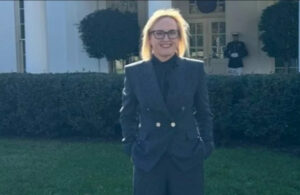
The Velta Group, which has assets for the extraction of titanium-bearing ores in Novomyrhorod (Kirovohrad region), has received its third patent from the US Patent and Trademark Office (USPTO) for its innovative Velta Ti Process technology.
According to a press release on Monday, the new patent confirms the possibility of obtaining high-quality titanium dioxide (TiO₂), a key material for the further production of titanium powder using the Velta Ti Process technology, as well as commercial products based on titanium, iron, calcium, and nitrogen.
It should be noted that Velta Holding US Inc. has obtained three Ukrainian and three US patents since 2020.
Velta Holding US Inc. is a group of companies engaged in the full cycle of titanium production, from the extraction of titanium raw materials through innovation to the manufacture of final metal products.
Velta LLC is a Ukrainian company that is part of the group and is a manufacturer of titanium raw materials and the only private Ukrainian company that has built a titanium mining complex from scratch in the Kirovohrad region. With over 15 years of experience in the mining sector, the company holds 2% of the global titanium market and has partners and customers in Europe and the US.
Velta Holding also includes the Velta RD Titan research and development center and Velta Medical, a manufacturer of custom titanium implants.
Velta Holding LLC is wholly owned by VKF Velta LLC. The ultimate beneficiaries are three individuals: Andriy Brodsky (60%), Vadym Moskalenko (20%), and Vitaliy Malakhov (20%).
PATENT, PROCESSING, TECHNOLOGY, TITANIUM, US, USA, VELTA

Julia Davis has been appointed the new ambassador of the United States to Ukraine, US State Department spokesperson Tammy Bruce announced during a briefing on Thursday.
Davis is currently serving as the US ambassador to the Republic of Cyprus.
Prior to her appointment as ambassador to Cyprus, Julia Davis served as Special Envoy for Belarus in Vilnius, Lithuania.
In 2020, she was confirmed as the first US ambassador to the Republic of Belarus since 2008. Previously, Davis served as deputy assistant secretary of state for Western European and European Union affairs in the Bureau of European and Eurasian Affairs, as well as deputy permanent representative of the US Mission to NATO.

The government has made the decisions necessary to sign an agreement between Ukraine and the United States on the establishment of the Recovery Investment Fund, Prime Minister Denys Shmyhal said.
“The government has made the decisions necessary to sign an agreement between Ukraine and the United States on the establishment of the Recovery Investment Fund,” Shmyhal wrote in a telegram.
According to him, the agreement is based on five key principles.
– Equality. The fund is created on a 50/50 basis and both parties have equal voting rights.
– Retention of control. Ukraine retains full control over subsoil, infrastructure and natural resources.
– New investments, not debts. The agreement does not provide for any debt obligations.
– Guaranteed investors and buyers. The Fund will invest in projects and guarantee commercial purchases of products on a take-or-pay basis.
– Consistency with the European integration course. The agreement will not pose an obstacle to Ukraine’s EU membership.
Shmyhal noted that the Fund will be filled with contributions from the United States and Ukraine. The Fund’s profits will be reinvested exclusively in Ukraine.
“Thanks to this agreement, we will be able to attract significant resources for recovery, start economic growth, and receive the latest technologies from partners and a strategic investor in the United States,” the Prime Minister concluded.

The number of housing starts in the United States in March fell by 11.4% compared to the previous month and amounted to 1.324 million in annualized terms, the country’s Commerce Department reported.
This is the maximum decline in the last year.
According to the revised data, in February the number of new buildings amounted to 1.494 million, not 1.501 million, as previously reported.
Analysts on average had forecast a 5.4% decline from the previously announced February level, to 1.42 million, according to Trading Economics.
The construction of single-family homes fell by 14.2% last month to 940 thousand. At the same time, the number of new apartment buildings (including apartments and condominiums), a more volatile segment of the market, remained unchanged at 371 thousand.
The number of permits for the construction of new homes in March increased by 1.6% to 1.482 million in terms of annualized rates. Experts expected an average of 1.45 million.
The number of building permits for single-family homes decreased by 2% to 978 thousand, while the number of apartment buildings jumped by 10.1% to 445 thousand.
The number of new buildings in the US last month was 1.9% higher than in March 2024.

The Chinese authorities have decided to raise duties on US products from 34% to 84%, The Global Times reported on Wednesday, citing the Commission on Customs Tariffs under the State Council of the People’s Republic of China. The new tariffs are to come into effect on April 10 at 12:01 a.m. local time (7:01 a.m. ET).
In turn, Chinese state media reported that the Chinese authorities added 6 US firms to the list of unreliable organizations and 12 US entities to the list of legal entities subject to export controls.
Earlier, US President Donald Trump, having received no signals of concessions from Beijing, signed a decree to increase duties on goods from China. According to the decree, the additional 34% duty previously announced by Trump is being increased by 84%. Thus, taking into account the 20% duties that Trump imposed on goods from China in the first term of his presidency, the duties now amount to 104%.
Last week, the Chinese authorities decided to impose additional duties of 34% on goods from the United States starting April 10.
CNBC noted that the United States was ready to reconsider its position on raising duties on Chinese goods if China abandoned its retaliatory duties on American goods. However, Beijing stated that it was not going to make concessions.

Representatives of the CDU are concerned about the safety of Germany’s gold reserves in storage at the US Federal Reserve, Bild reports. In particular, the publication cites the opinion of Christian Democratic Union (CDU) MP Marco Vandervitz, who, according to Bild, unsuccessfully tried to inspect the gold reserves in 2012, trying to force the Bundesbank to either take on a more active role as custodian or repatriate them to Germany.
MEP Markus Ferber (CDU) also called for more thorough inspections of German gold stored in the United States.
“Bundesbank officials should personally count the bullion and document their results,” Bild quoted him as saying.
Germany has the second largest gold reserves in the world, and keeps 37% of them – about 1,236 metric tons worth 113 billion euros – in the vaults of the Federal Reserve System of New York. These reserves of the precious metal ensure that the Bundesbank will have access to what it can exchange for US dollars (or any other hard currency) if needed.
German politicians are concerned about both Trump’s tariff policy and his attempts to expand his powers and become above the US judicial system.
In February, Bundesbank President Joachim Nagel told Bild: “We have (…) no doubt that in the New York Fed we have a reliable partner for the storage of our foreign exchange reserves.”
The publication points out that concerns about the fate of gold have been exacerbated by “none other than billionaire and senior Trump administration official Elon Musk, who called for a review of the US’s own foreign exchange reserves.”